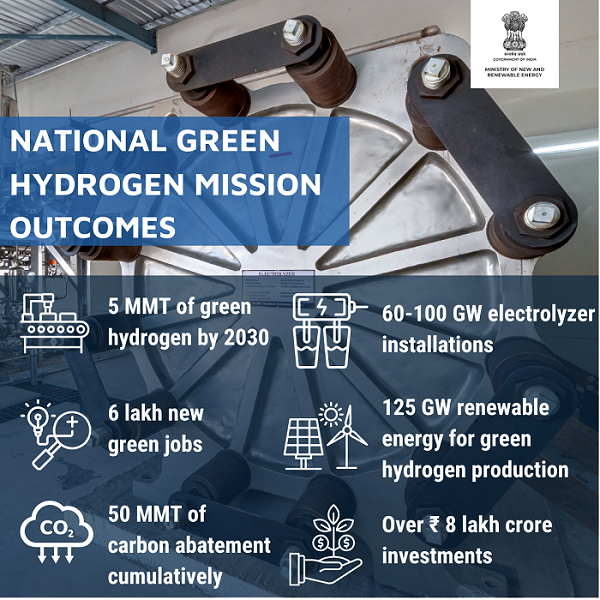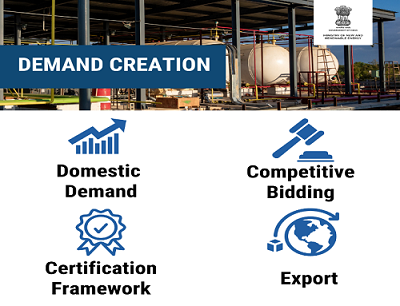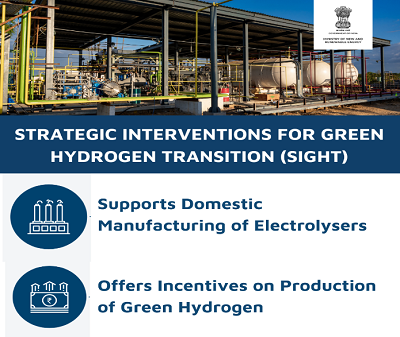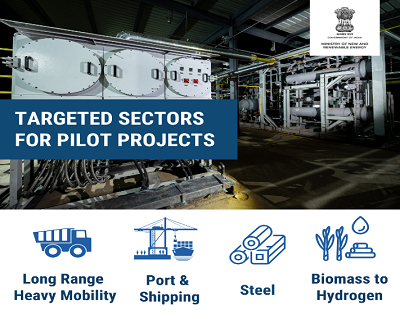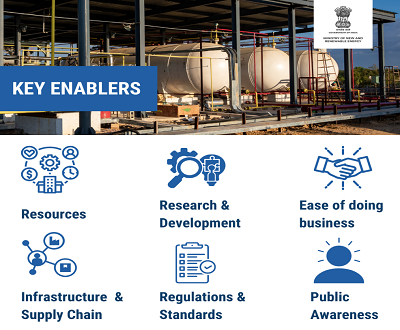Enabling Policy Framework
To facilitate delivery of RE for Green Hydrogen production, various policy provisions including inter-alia waiver of Interstate transmission charges for renewable energy used for Green Hydrogen production; facilitating renewable energy banking; and time bound grant of Open Access and connectivity, will be extended for Green Hydrogen projects.
Infrastructure Development
The National Green Hydrogen Mission, which aims to accelerate the deployment of Green Hydrogen as a clean energy source, will support the development of supply chains that can efficiently transport and distribute hydrogen. This includes the use of pipelines, tankers, intermediate storage facilities, and last leg distribution networks for export as well as domestic consumption.
Regulations and Standards
The Mission will coordinate the various efforts for regulations and standards development in line with the industry requirements for emerging technologies. Work has commenced on establishing a framework of regulations and standards to facilitate growth of the sector and enable harmonization and engagement with international norms.
Research and Development
A public-private partnership framework for R&D (Strategic Hydrogen Innovation Partnership – SHIP) will be facilitated under the Mission. The framework will entail creation of a dedicated R&D fund, with contributions from Industry and respective Government institutions. These institutions will pool resources to build a comprehensive goal-oriented Research and Innovation programme in collaboration with the private sector.
Skill Development
A coordinated skill development programme, that covers requirements in various segments, will be undertaken in coordination with the Ministry of Skill Development & Entrepreneurship.
Other Components
In addition to the above, the Mission will also cover Public Awareness, Stakeholder Outreach and International Cooperation.
Mission Governance Structure
An Empowered Group (EG) chaired by the Cabinet Secretary and comprising Secretaries of Government of India and experts from the industry will guide the Mission; an Advisory Group chaired by the PSA and comprising experts will advise the EG on scientific and technology matters; and a Mission Secretariat headquartered in MNRE will undertake the programme implementation.
Mission Outlay
The initial outlay for the Mission will be ₹ 19,744 crore, including an outlay of ₹ 17,490 crore for the SIGHT programme, ₹ 1,466 crore for pilot projects, ₹ 400 crore for R&D, and ₹ 388 crore towards other Mission components. MNRE will formulate schemes guidelines for implementation of the respective components.
